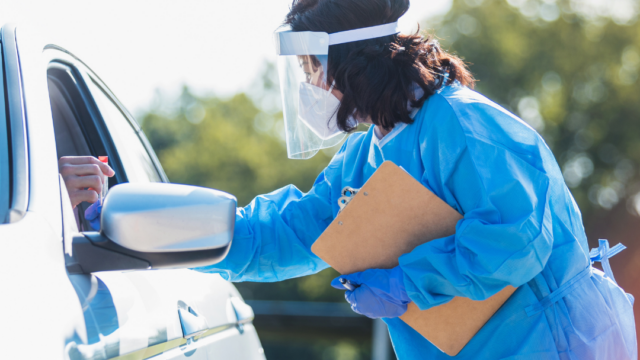Press Release
Sports Teams Need to Put the Health and Safety of Communities First
July 2020

BCHC OUTLINES PRINCIPLES TO PROTECT THE PUBLIC’S HEALTH
FOR IMMEDIATE RELEASE: July 16, 2020
Chrissie Juliano, MPP, Executive Director, issued the following statement:
Many sports fans across the country are excited at the prospect of even a shortened Major League Baseball (MLB) season, as well as the possibility of other professional sports leagues restarting soon. That said, on behalf of the Big Cities Health Coalition, a forum for leaders of America’s 30 largest metropolitan health departments, I hope that MLB recognizes the risks of conducting a season as our country struggles to get the COVID-19 pandemic under control. As cases continue to rise in many parts of the country, MLB and other sports leagues have a responsibility to take robust safety measures to protect players and staff, their families, and the communities in which they play.
Likewise, local public health officials have a responsibility to protect and promote the health and safety of their communities, as they work to both respond to upticks in cases and balance safe reopening procedures. In recent weeks, many have engaged in discussions with their local sports teams about whether or how professional sports can return and have worked to accommodate the teams as much as is possible and safe.
Just last week, in fact, because of these ongoing discussions in cities across the country, BCHC members collaborated on a series of high-level principles to help each other navigate protocols as the MLB season and others approach.
These principles include the following:
- Any player or staff member who is feeling ill should stay home and seek appropriate advice from a health professional.
- Appropriate hygiene such as handwashing stations should be readily available in all sports facilities.
- Players and staff are expected to adhere to the same quarantine and isolation standards as others to protect the health and safety of our communities, which means a full 14-day quarantine. If “modified quarantine” arrangements are made to allow players or staff to be at their place of work (I.e. a stadium), this increases the risk of exposure to others. Organizations that implement modified quarantines must acknowledge the risk they are accepting on behalf of their employees. All those under such quarantine must not potentially expose any member of the public.
- Testing, regardless of frequency, should not replace quarantine of close contacts of individuals diagnosed with COVID-19.
- If three or more cases are identified within the workplace within a span of 14 days, the organization should report this cluster to the local health authority for appropriate investigation. Players and staff must cooperate with confidential local health authority case investigation and contact tracing efforts, and sports leagues and individual teams should encourage this cooperation.
- Risk of transmission of COVID-19 across the U.S. must be considered before permitting close contacts to travel during the incubation period of the virus which is established as 14 days.
- All work associated travel should be conducted via private charters, so as to not expose any other members of the public. To that end, organizations should have a protocol in place should a player test positive for the coronavirus on the road.
- For games occurring without fans, facility occupancy at the games should be limited to those who are essential for game day operations. (e.g., TV/radio broadcast crews, event/operations crews, team coaching staff, medical staff, athletes, etc.)
- It is critical that the local public health status of COVID-19 be considered when determining if professional sporting events should take place in the jurisdiction, with or without spectators.
We all want to see our teams back on their respective fields, but, frankly, this should not come at the expense of the health and safety of the people in their organizations and our community.
###
Contact: Max Mays, mays@bigcitieshealth.org
About the Big Cities Health Coalition
The Big Cities Health Coalition (BCHC) is a forum for the leaders of America’s largest metropolitan health departments to exchange strategies and jointly address issues to promote and protect the health and safety of their residents. Collectively, BCHC member jurisdictions directly impact nearly 62 million people, or one in five Americans. For more information, visit https://www.bigcitieshealth.org.